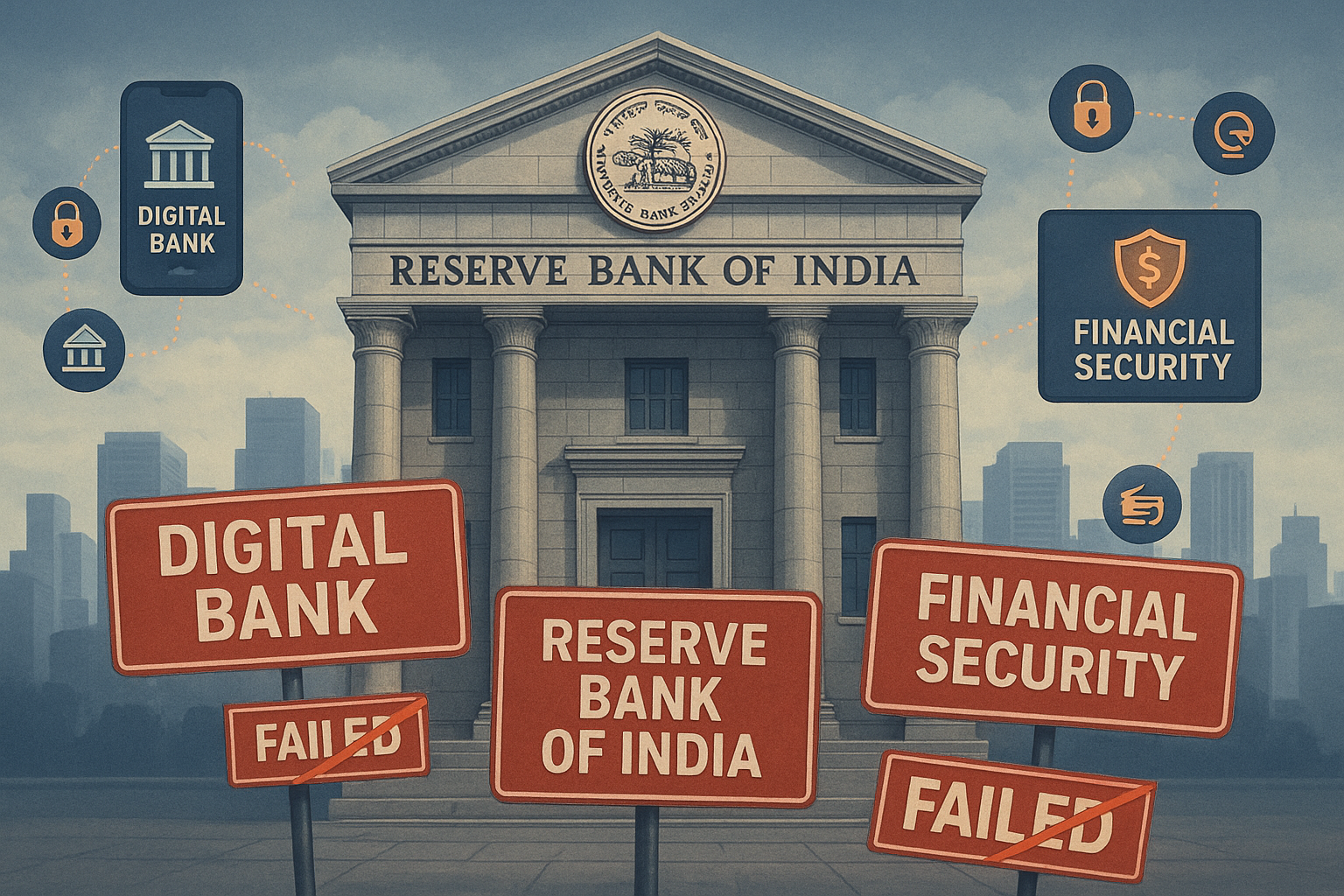India has not seen the entry of a new universal bank since 2016, raising critical questions about the Reserve Bank of India’s (RBI) stance on licensing policy. While the economy has evolved significantly in the past decade—with digital finance, fintech, and private capital reshaping financial services—the central bank has chosen a measured, risk-averse approach to awarding new bank licenses.
This conservative posture, as some experts argue, may be stifling competition, innovation, and financial inclusion in a rapidly digitizing economy.
Background
The RBI’s last round of universal bank licensing in 2014 led to the entry of Bandhan Bank and IDFC Bank. Since then, despite several expressions of interest, no fresh licenses have been granted.
A subsequent licensing window through the “on-tap” mechanism was announced in 2016, but even that has not yielded any successful applications to date. Several high-profile applicants, including Cholamandalam, Bajaj Finserv, and IndiaBulls, either withdrew or were reportedly not pursued further by the regulator.
Why Is the RBI Holding Back?
The RBI’s reluctance stems from systemic stability concerns. According to analysts, the central bank is cautious about:
-
Regulatory arbitrage by conglomerates with opaque structures.
-
Poor governance standards in many NBFCs and fintech applicants.
-
The need for strong fit-and-proper criteria and robust capitalization.
Former RBI Deputy Governor Viral Acharya had earlier flagged the risks of granting licenses to corporate houses without clear resolution frameworks and conflict-of-interest guardrails.
Contradiction in Policy Signals?
Interestingly, the RBI has encouraged NBFCs to scale up, supports small finance banks, and has fostered digital-first models under a regulatory sandbox. This has led to:
-
A robust NBFC credit ecosystem.
-
Innovations in digital lending and payments.
-
Growth in neobank partnerships and D2C fintechs.
Yet, these players still lack the full powers of a universal bank—especially in deposit-taking, international banking, and foreign exchange operations.
Critics argue that the central bank is favoring incremental regulation over bold transformation, which could delay India’s progress toward a more competitive banking landscape.
Expert Views
“There is a need to break the monopoly of legacy banks and introduce competitive forces in the sector, particularly as fintechs mature,” said CA Manish Mishra, Financial Sector Policy Advisor.
“While caution is warranted, a complete freeze on licensing undermines innovation and restricts access to banking in underserved regions,” noted CA Manoj Kumar Singh, Banking Reforms Expert.
Policy & Market Implications
-
NBFC-bank convergence may accelerate through M&As rather than fresh licensing.
-
Fintechs may increasingly rely on partnerships or apply for Payment Bank or SFB licenses as workarounds.
-
The government’s vision of financial inclusion, especially in rural or underserved urban zones, may hit a roadblock if only legacy banks dominate the space.
Conclusion
RBI’s cautious universal bank licensing policy reflects a deep-rooted desire to preserve financial stability. However, in an era of open banking, financial decentralization, and digitally empowered consumers, India may need a calibrated risk-taking approach—one that enables new-age institutions to responsibly enter the formal banking sector. With the Monsoon Session of Parliament expected to address multiple financial sector reforms, the debate on India’s bank licensing policy is likely to intensify.












